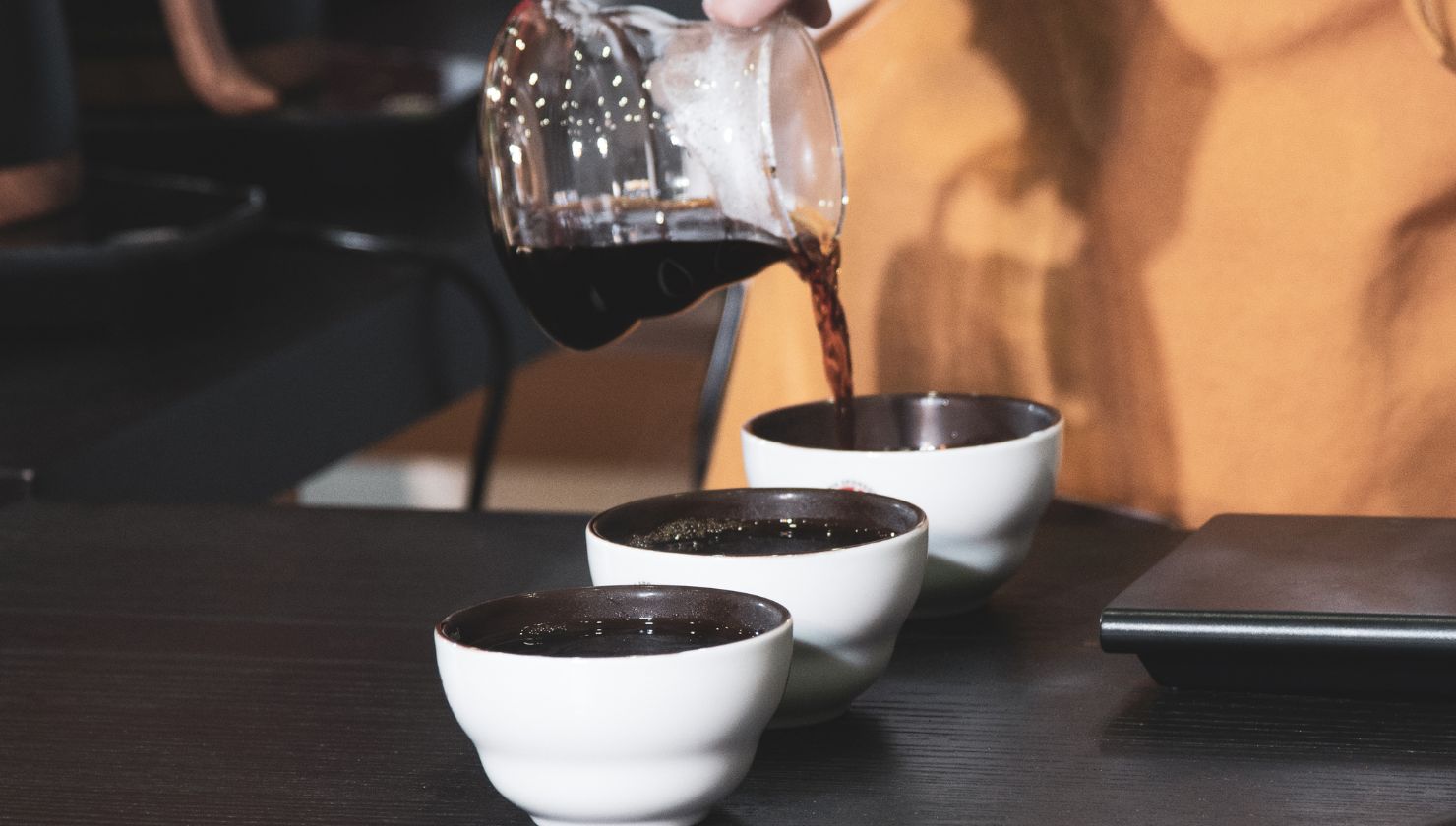Is Coffee Good For You
The health effects of coffee has always been a hot topic with scientists and there’s a wealth of information out there.
Depending on where Google takes you, coffee can be part of a healthy balanced diet or it can be an incredibly harmful and dangerous substance. Some think it’s good for you, some think coffee is bad for you.
Let’s break the science jargon down, and take a look at the facts about your beans.

THE 8 HEALTH BENEFITS OF COFFEE
1. COFFEE IS GOOD FOR YOU BODY
Coffee is full of antioxidants and nutrients that help fight against free radicals.
The average coffee drinker, who eats a typical Western diet, gets more antioxidants from coffee, than from fruits and vegetables combined.
The nutrients in your cup of coffee include Riboflavin (Vitamin B2), Pantothenic Acid (Vitamin B5), Manganese, Potassium, Magnesium and Niacin (B3).
2. BOOSTS PHYSICAL PERFORMANCE AND ENERGY LEVELS
Caffeine is the most commonly consumed psychoactive substance in the world and is an active ingredient in coffee.
It improves athletic performance by mobilizing fatty acids from the fat tissues and is found in many of the world’s leading pre-workout energy drinks.
Two separate studies found that caffeine increased exercise performance by 11-12% on average.

3. COFFEE HELPS BURN FAT
Caffeine raises metabolism and increases the oxidation of fatty acids which helps us burn our foods more efficiently.
Several studies show that caffeine can boost the metabolic rate by 3-11%.
Other studies show that caffeine can specifically increase the burning of fat, by as much as 10% in obese individuals and 29% in lean people.
Regular black coffee only contains around 2 calories. After all, coffee is just ground beans and water.
However, if you add sugar, cream, and milk, the calorie count quickly adds up and the sugars go straight to the hip.
4. COFFEE MAKES YOU HAPPY AND SMARTER
Turning those frowns upside down with a cup of coffee isn’t just an urban myth, there’s growing evidence that coffee gives your brain’s dopamine production a boost.
According to one study, regular coffee drinkers are half as likely to commit suicide and another study indicates that women who drank a healthy dose of coffee on the daily, were 20% less likely to suffer from depression.
Many controlled trials have examined the effects of caffeine on the brain, demonstrating that caffeine can improve mood, reaction time, memory, vigilance and general cognitive function.

5. COFFEE MAY REDUCE THE RISK OF ALZHEIMER’S, DEMENTIA AND PARKINSON’S
Several studies show that coffee drinkers have up to a 65% lower risk of getting Alzheimer’s disease.
In studies, coffee drinkers have a much lower risk of developing Parkinson’s disease, with a reduction in risk ranging from 32-60%.
6. COFFEE REDUCES RISKS OF TYPE II DIABETES
Drinking coffee decreases insulin sensitivity so is associated with a drastically reduced risk of type II diabetes. People who drink several cups of coffee per day are the least likely to become diabetic.
7. COFFEE PROTECTS THE LIVER
Regular coffee drinkers have a much lower risk of developing cirrhosis and have up to a 40% lower risk of liver cancer.
8. COFFEE KEEPS YOU ALIVE FOR LONGER
And we're not entirely sure why. WHowever, in two very large prospective epidemiological studies, drinking coffee was associated with a lower risk of death from all causes.
This effect is particularly profound in type II diabetics, one study showing that coffee drinkers had a 30% lower risk of death during a 20 year period.

THE 6 NEGATIVE EFFECTS OF COFFEE
1. SIDE-EFFECTS OF TOO MUCH CAFFEINE
Too much caffeine can give you the jitters, can make you anxious and give you heart palpitations. Some people suffer from disrupted sleep. If this is you, try not to consume coffee after midday.
Caffeine has also been known to raise blood pressure in some cases.
2. CAFFEINE CAN BE ADDICTIVE
Some people suffer from withdrawal symptoms such as headaches, tiredness, a foggy brain and irritability. Depending on the person, this can last for several days.
Coffee drinkers can also become tolerant to caffeine. The effects of caffeine seem to disappear and a larger dose is needed to give you the same kick.
3. CHEAP COFFEE CAN BE TOXIC
Poor quality coffee can have a lot of impurities and harmful toxins.
The chemicals used on the farms as well as the additives and flavors added during the roasting process can cause sickness, headache or dizziness.
Buying high quality, specialty coffee will eliminate any of these issues.

4. SOMETIMES…COFFEE MAKES YOU POOP
Caffeine is a very mild diuretic, which can make you pee more often, and particularly sensitive people can experience the laxative effect. Lots of steamed milk and sugar can also add to your digestive problems. I’ll leave the rest to your imagination.
5. STICK TO THE DECAF WHEN YOU’RE PREGNANT
The evidence is divisive on this one. If you drink coffee while pregnant, caffeine will reach the fetus. We’re unsure the effects this has on the fetus, so best be safe and stick to the decaf.
6. DITCH THOSE ADDED EXTRAS
Do not add artificial sweeteners or chemical-laden creamer to your coffee. Not only does this taste bad, it has all sorts of negative health implications too. Buy delicious tasting specialty coffee beans – then there’ll be no need for sweeteners! Just saying...
Be careful when drinking coffee drinks from chain store coffee shops. There are all sorts of sweet additives and flavoring chemicals in your drink that you may not be aware of. Check with your barista to see what the actual ingredients are.
We’re not saying that milk is bad for you, however, be aware that even an average 8oz cappuccino at a specialty coffee shop contains approximately 10g of sugar in the milk alone. That’s a quarter of your RDA. Then throw in something sweet on top, you get where I'm going with this...
A cup of black coffee has 4 calories and no sugar. If you get good quality specialty beans, there'll be a natural sweetness to the taste. Without the extras, coffee gets the thumbs up for those watching their calories and sugar intake.

SO, IS COFFEE BAD FOR YOU?
In fact, most scientists agree that two to four cups of black coffee per day is actually good for your health. Some saying that coffee should be in the same healthy drinks category as green tea. Just don’t overdo it and you’ll reap the rewards!
Need some fresh beans?
Please keep in mind that all the studies on coffee and its effects are observational studies. These studies only show association however they cannot prove that coffee alone caused its effects.












